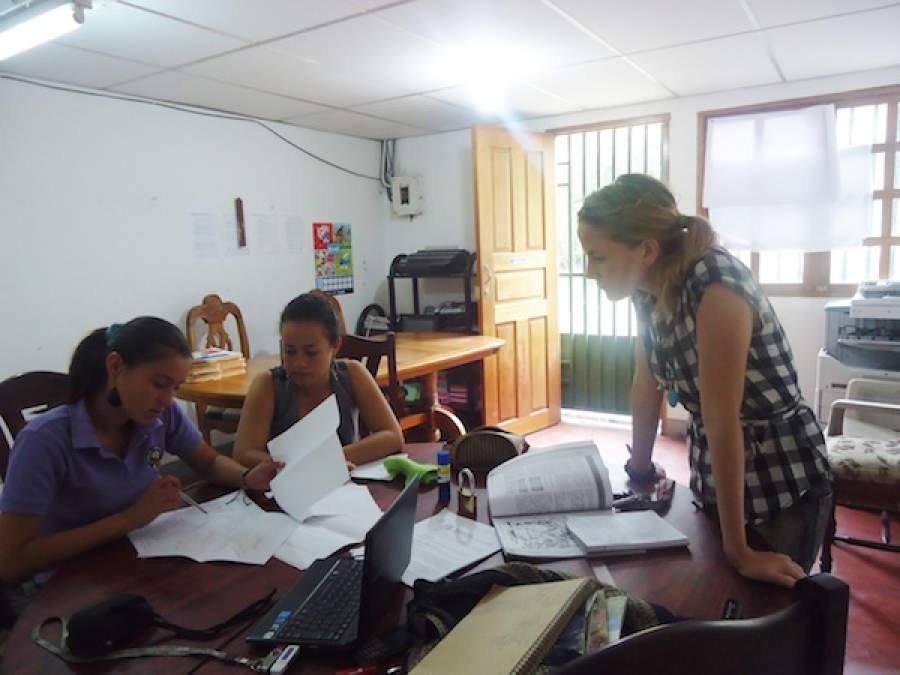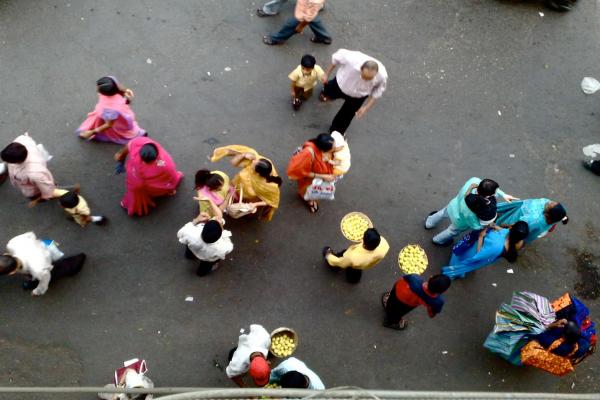I really don’t feel like pulling myself out of the office to stagger downtown and face people who appear to only want to gawk at the curious-looking “foreign object” of a white girl, walking down the street.
I only have a few things to buy; some medicine, a pound of oranges, a bag of rice and a few garlic buds. I am in need of these items but I am procrastinating for fear of judgment and frankly, today I just don’t feel like being on display or being catcalled. Here in Nicaragua, the sole act of walking down the street, especially for a woman, can sometimes feel so uncomfortable. Eventually, ignoring and looking the other way becomes an art form, a special talent.
Up until about a week ago, I was starting to feel quite complacent and comfortable as I reached the halfway mark of my internship. However, a friend from home came to visit and I had one of the best weeks I have had in years. But now that it’s all over, I feel at a loss, unmotivated, sad, lonely and having to re-adjust all over again— somehow during the course of the last week, I had forgotten I was a foreigner and what that truly meant. My re-adjustment got me to thinking.
Being the foreigner can, at times, be a wonderfully exciting experience filled with one enlightening moment after the other or it can be frustrating, scary and irritating. At times I feel like I constantly have my back up or am looking over my shoulder. Questions and fears are constantly circulating and repeating in my head: “Who can I trust?” “What do Nicaraguans think of me—what is my reputation?” “Will I be robbed?” “Will I be attacked?” “Who is watching me?” “Who is trying to steal from me?” “Who is trying to rip me off?” “Am I safe?” “Am I being appropriate and respectful?”
I constantly and almost subconsciously feel on edge. That edge eventually can develop into something else altogether: resentment, frustration, anger, blame, aggression and even hate. The wonderful thing, however, about being a foreigner and something many who choose to travel should consider, is their awareness. Practice it all day. Allow it to become second nature. Be mindful rather than hateful.
For centuries, and still to this day, Nicaraguans have been and are being ripped off, abused, taken advantage of, attacked and invaded physically, economically, and mentally by a foreign presence, whether it is a corporation, government, institution, tourist or otherwise. Many tourists of all walks of life and nationalities do not tend to contemplate this and instead come to Nicaragua to travel on a dime and get by as cheaply as possible, even if this means bartering, ripping off whomever they can just to “get by.” Would we do this at home? Is this Nicaraguan truly “ripping off” or are they simply looking to receive a fairer price? My best bet is that underneath all of this supposed “ripping off,” this particular Nicaraguan—whether it is a taxi driver, hotel manager, market vendor or everyday citizen—could be experiencing some unconscious resentment and view the foreigner as yet another invader, another foreign power here to see, conquer and take advantage.
When I do end up leaving my house to brave the outside world and those questions start to circulate in my head, I stop myself to contemplate and observe the conflict with which we are faced. I feel fed up. I feel threatened, exposed and fearful. Then again, so have and do many Nicaraguans for hundreds of years.
So I come to this conclusion, this question: is this ugly, cyclical, karmic conflict ever going to end? Are foreigners going to continue taking advantage and when not satisfied with the results, eject their aggression onto the next Nicaraguan that crosses their path? And then, will that Nicaraguan then expel his or her aggression and resentment onto the next foreigner who comes along?
Whoever said a world filled with hate, anger and aggression was a functional one? There is no hope in that if you ask me, and without hope, what are we left with? Yet, it is the status quo based on so much hate that we choose to accept, expect and act on.
One thing I have learned from my anger (and all of those ugly feelings in between), is that they stem from fear. Although at times many Nicaraguans and foreigners feel quite different from each other, we are really similar; we are all afraid.
It is now, however, time to put down our fear, create a new dialogue; pick up a new feeling. I say, considering the long legacy of violence initiated by foreign powers, it is the foreigner who must initiate the change. Let us end the ugly, cyclical tradition of invasion, robbery and assault. Let Nicaraguans and foreigners work together to find a solution. After all, we all depend on each other for growth and strength. And at the end of the day, we are all here to learn from not only ourselves but from one another. So starting today, let us begin the learning. Let us open our eyes, be aware, be humble and be kind.
Add this article to your reading list




